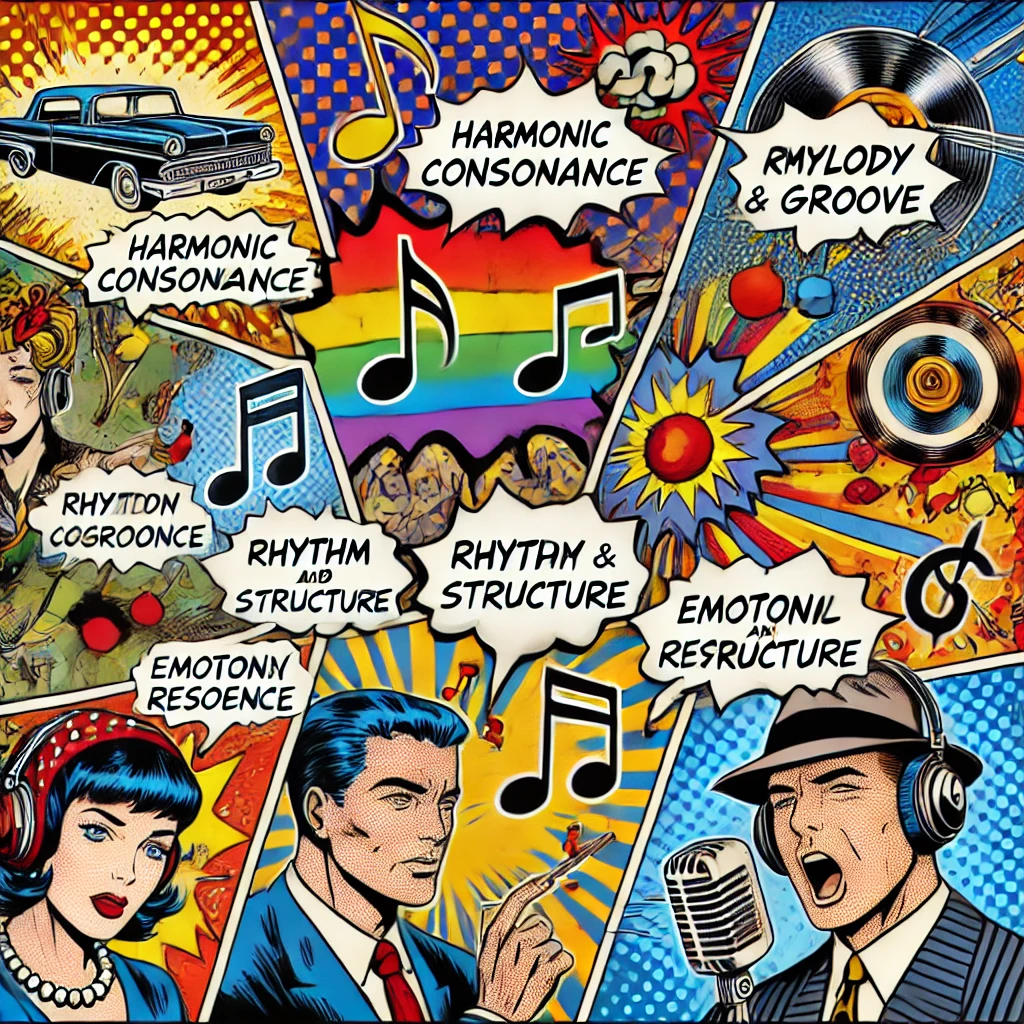What makes music sound good
Random paint splashed on a canvas is much less appalling than random notes plunked down on a piano.
Research, from Dr. Dmitri Tymoczko. youtube presentation on the geometry of music: “Random paint splashed on a canvas is much less appalling than random notes plunked down on a piano.”
http://dmitri.tymoczko.com/publications.html

What makes music sound good is a complex interplay of psychological, cultural, and physiological factors that can vary widely among individuals and cultures. Despite this diversity, certain universal elements and principles contribute to the widespread appeal of music. Here’s a closer look at some of these factors:
Harmonic Consonance
Harmony plays a significant role in making music sound pleasant. Consonant harmonies, which feature notes with simple frequency ratios (like octaves, perfect fifths, and major thirds), tend to sound more pleasing and stable to human ears. This preference for consonance over dissonance might have roots in the natural harmonic series and the way our auditory system processes sounds.
Rhythm and Groove
Rhythm—the pattern of beats, or the timing of musical sounds—contributes significantly to how good music sounds. A compelling rhythm or groove can invoke physical responses, such as tapping feet or nodding heads. The predictability of rhythm, along with moments of unexpected deviation, can create a satisfying balance between predictability and surprise.
Melody and Structure
A memorable melody is often central to music that sounds good. Melodies that balance repetition and variation effectively are particularly appealing, offering listeners the satisfaction of predictability along with the interest of novelty. The structure of a piece of music—how its sections are arranged and how it progresses—also influences its appeal by creating a sense of journey and resolution.
Emotional Resonance
Music’s ability to evoke or enhance emotions is a key part of its appeal. Whether through lyrics that speak to personal experiences, harmonic progressions that stir feelings, or rhythms that energize, music that connects on an emotional level tends to be perceived as sounding good. This emotional resonance can be deeply personal, influenced by individual experiences, memories, and associations.
Cultural Context and Familiarity
Cultural background and personal experience play significant roles in determining what music sounds good to an individual. Music from one’s own culture or music that one has been exposed to frequently may be more likely to sound good due to familiarity and the cultural significance attached to it. Over time, exposure to particular styles or genres can shape musical preferences.
Production Quality
The quality of a music recording or performance can influence how good the music sounds. High production values, such as clear sound, balanced mixing, and thoughtful arrangement, can enhance the listening experience, making the music more appealing. Conversely, poor sound quality can detract from even the most well-composed music.
Individual Differences
Finally, personal taste plays a significant role in what makes music sound good. Individual preferences for certain instruments, vocal styles, tempos, and genres mean that what sounds good is highly subjective. These preferences can be shaped by a multitude of factors, including personality, life experiences, and even genetic predispositions.
In conclusion, while there are some universal elements that contribute to the appeal of music, what makes music sound good is a deeply personal and complex question. The interplay of harmonic consonance, rhythm, melody, emotional resonance, cultural context, production quality, and individual differences all contribute to the enjoyment of music.